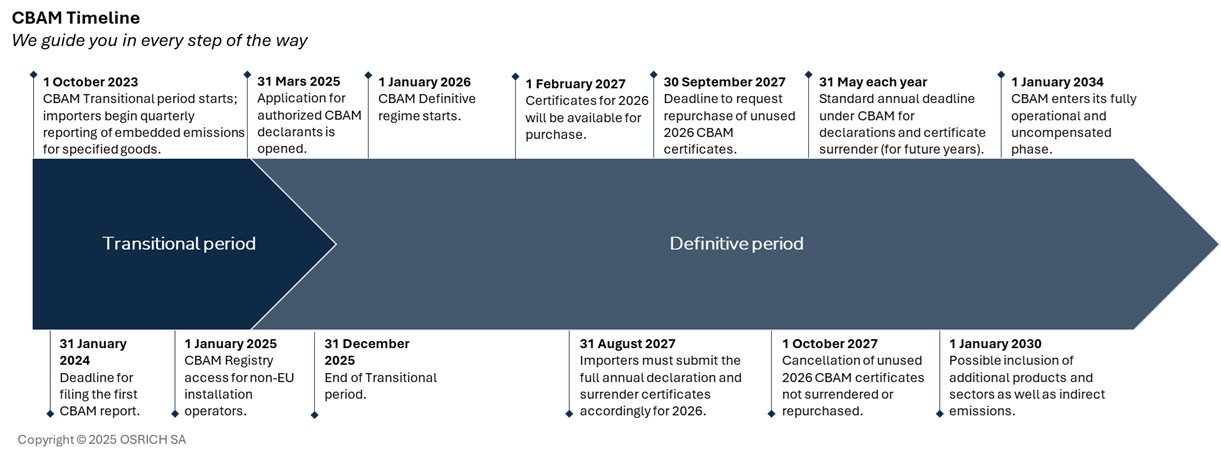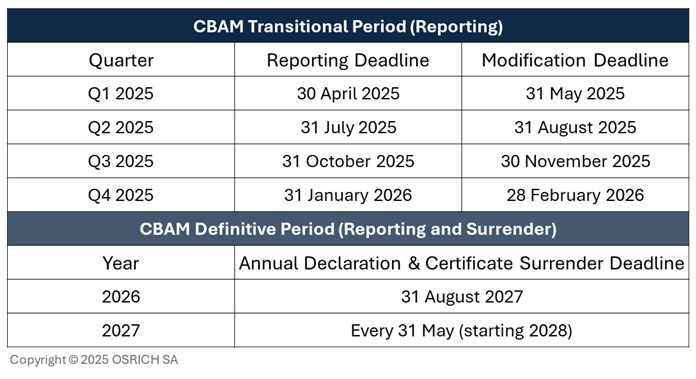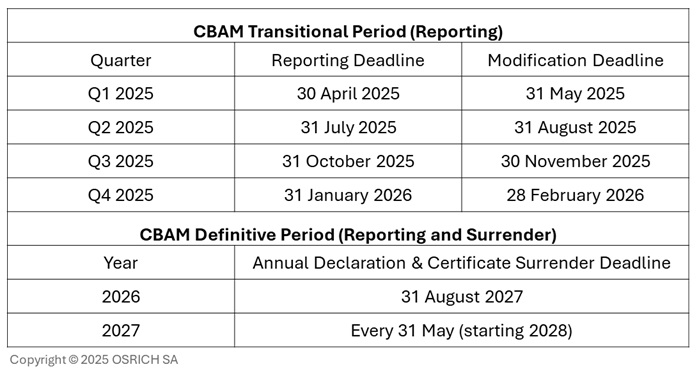WHAT IS CBAM?
The Carbon Border Adjustment Mechanism (CBAM) is a carbon tariff on certain goods imported into the EU, introduced by the European Commission to protect domestic industries from the risk of carbon leakage. CBAM was designed in response to rising production costs within the EU, which are driven by stringent climate regulations aimed at achieving a 55% net reduction in greenhouse gas emissions by 2030 compared to 1990 levels. Under CBAM, importers are required to pay for the carbon emissions associated with the production of the goods they bring into the EU, leveling the playing field between EU-based and foreign producers.

UNDERSTANDING THE IMPACT OF CBAM
As the global push for sustainability accelerates, the Carbon Border Adjustment Mechanism (CBAM) will transform not just the aluminium industry, but all sectors covered under its scope. This new regulation introduces both direct and indirect costs—imposing carbon tariffs that will drive up prices across a wide range of products, from raw materials to everyday consumer goods. The administrative burden of tracking and reporting carbon footprints, alongside compliance with EU-approved accounting standards, will force companies to rethink their supply chains and make critical decisions about their suppliers. Non-compliance could result in severe financial penalties and reputational damage, making it essential for businesses to act quickly. However, these challenges also present opportunities. Companies that invest early in low-carbon technologies and realign their operations to meet CBAM standards will be better positioned to compete in the global market. To guide you through these complex changes, we’ve created a CBAM Guideline outlining who is affected, what needs to be done during the transitional and definitive periods, and how to prepare for this new carbon-conscious marketplace.

CBAM REPORTING SCHEDULE
During the transitional period (1 October 2023 – 31 December 2025), declarants must submit quarterly CBAM reports containing the volume of imported CBAM goods, their embedded greenhouse gas emissions, and any carbon price paid in the country of origin.
Starting from the definitive period in 2026, the obligation evolves: importers will be required to submit annual CBAM declarations accompanied by the surrender of CBAM certificates corresponding to the embedded emissions in imported goods.
To support businesses in meeting these obligations, OSRICH has developed the following reporting schedule based on official EU Commission deadlines. This table provides a clear roadmap for maintaining compliance across both transitional and definitive phases.

WHAT’S YOUR GOAL?
CARBON REPORTING FOR EUROPEAN IMORTERS
Whether you’re importing aluminium, industrial goods, or other CBAM-covered products, OSRICH provides expert consultancy to ensure seamless CBAM reporting and compliance. We assist EU importers in navigating complex carbon accounting, data collection, and reporting requirements, while also offering supply chain diversification strategies to source lower-carbon products. Our tailored solutions not only ensure compliance but also position your company for sustainable growth in a carbon-conscious marketplace.
CARBON REPORTING FOR NON EU PRODUCERS
For non-EU producers of aluminium, industrial goods, and other CBAM-covered products, OSRICH offers comprehensive solutions to help you meet the EU’s carbon reporting and compliance standards. We streamline the complex carbon accounting and reporting process, ensuring that your products meet CBAM requirements. By optimizing your carbon data management, we also help you maintain competitiveness in the European market while aligning with global sustainability goals.
CARBON REDUCTION IN ALUMINIUM PRODUCTION PLANTS
At OSRICH, we go beyond compliance to help aluminium smelters decarbonize their production processes. We provide full coordination of decarbonization projects, from identifying the right technologies—such as renewable energy integration, Carbon Capture, Utilization, and Storage (CCUS), and more—to securing the necessary funding to bring these projects to life. Our team manages the entire process, from concept to realization, ensuring that your company is prepared for a low-carbon future while maintaining its competitive edge in the global market.
To learn more about CBAM compliance, supply chain diversification, and production decarbonization
WHAT IS CBAM?
The Carbon Border Adjustment Mechanism (CBAM) is a carbon tariff on certain goods imported into the EU, introduced by the European Commission to protect domestic industries from the risk of carbon leakage. CBAM was designed in response to rising production costs within the EU, which are driven by stringent climate regulations aimed at achieving a 55% net reduction in greenhouse gas emissions by 2030 compared to 1990 levels. Under CBAM, importers are required to pay for the carbon emissions associated with the production of the goods they bring into the EU, leveling the playing field between EU-based and foreign producers.

UNDERSTANDING THE IMPACT OF CBAM
As the global push for sustainability accelerates, the Carbon Border Adjustment Mechanism (CBAM) will transform not just the aluminium industry, but all sectors covered under its scope. This new regulation introduces both direct and indirect costs—imposing carbon tariffs that will drive up prices across a wide range of products, from raw materials to everyday consumer goods. The administrative burden of tracking and reporting carbon footprints, alongside compliance with EU-approved accounting standards, will force companies to rethink their supply chains and make critical decisions about their suppliers. Non-compliance could result in severe financial penalties and reputational damage, making it essential for businesses to act quickly. However, these challenges also present opportunities. Companies that invest early in low-carbon technologies and realign their operations to meet CBAM standards will be better positioned to compete in the global market. To guide you through these complex changes, we’ve created a CBAM Guideline outlining who is affected, what needs to be done during the transitional and definitive periods, and how to prepare for this new carbon-conscious marketplace.

CBAM REPORTING SCHEDULE
During the transitional period (1 October 2023 – 31 December 2025), declarants must submit quarterly CBAM reports containing the volume of imported CBAM goods, their embedded greenhouse gas emissions, and any carbon price paid in the country of origin.
Starting from the definitive period in 2026, the obligation evolves: importers will be required to submit annual CBAM declarations accompanied by the surrender of CBAM certificates corresponding to the embedded emissions in imported goods.
To support businesses in meeting these obligations, OSRICH has developed the following reporting schedule based on official EU Commission deadlines. This table provides a clear roadmap for maintaining compliance across both transitional and definitive phases.

CARBON REPORTING FOR EUROPEAN IMORTERS
Whether you’re importing aluminium, industrial goods, or other CBAM-covered products, OSRICH provides expert consultancy to ensure seamless CBAM reporting and compliance. We assist EU importers in navigating complex carbon accounting, data collection, and reporting requirements, while also offering supply chain diversification strategies to source lower-carbon products. Our tailored solutions not only ensure compliance but also position your company for sustainable growth in a carbon-conscious marketplace.
CARBON REPORTING FOR NON EU PRODUCERS
For non-EU producers of aluminium, industrial goods, and other CBAM-covered products, OSRICH offers comprehensive solutions to help you meet the EU’s carbon reporting and compliance standards. We streamline the complex carbon accounting and reporting process, ensuring that your products meet CBAM requirements. By optimizing your carbon data management, we also help you maintain competitiveness in the European market while aligning with global sustainability goals.
CARBON REDUCTION IN ALUMINIUM PRODUCTION PLANTS
At OSRICH, we go beyond compliance to help aluminium smelters decarbonize their production processes. We provide full coordination of decarbonization projects, from identifying the right technologies—such as renewable energy integration, Carbon Capture, Utilization, and Storage (CCUS), and more—to securing the necessary funding to bring these projects to life. Our team manages the entire process, from concept to realization, ensuring that your company is prepared for a low-carbon future while maintaining its competitive edge in the global market.